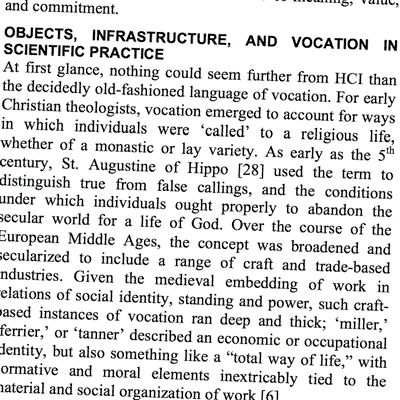(2021) Algorithmic Food Justice: Co-Designing More-than-Human Blockchain Futures for the Food Commons, Proceedings of the 2021 CHI Conference on Human Factors in Computing Systems, New York, NY, USA: Association for Computing Machinery, pdf, doi:10.1145/3411764.3445655
The relationships that constitute the global industrial food system tend towards two dominant values that are creating unsustainable social and environmental inequalities. The first is a human-centered perspective on food that privileges humans over all other species. The second is a view of food as a commodity to be traded for maximum economic value, rewarding a small number of shareholders. We present work that explores the unique algorithmic affordances of blockchain to create new types of value exchange and governance in the food system. We describe a project that used roleplay with urban agricultural communities to co-design blockchain-based food futures and explore the conditions for creating a thriving multispecies food commons. We discuss how the project helped rethink algorithmic food justice by reconfiguring more-than-human values and reconfiguring food as more-than-human commons. We also discuss some of the challenges and tensions arising from these explorations.
(2021) Social Sensemaking with AI: Designing an Open-Ended AI Experience with a Blind Child, Proceedings of the 2021 CHI Conference on Human Factors in Computing Systems, New York, NY, USA: Association for Computing Machinery, pdf, doi:10.1145/3411764.3445290
AI technologies are often used to aid people in performing discrete tasks with well-defined goals (e.g., recognising faces in images). Emerging technologies that provide continuous, real-time information enable more open-ended AI experiences. In partnership with a blind child, we explore the challenges and opportunities of designing human-AI interaction for a system intended to support social sensemaking. Adopting a research-through-design perspective, we reflect upon working with the uncertain capabilities of AI systems in the design of this experience. We contribute: (i) a concrete example of an open-ended AI system that enabled a blind child to extend his own capabilities; (ii) an illustration of the delta between imagined and actual use, highlighting how capabilities derive from the human-AI interaction and not the AI system alone; and (iii) a discussion of design choices to craft an ongoing human-AI interaction that addresses the challenge of uncertain outputs of AI systems.
